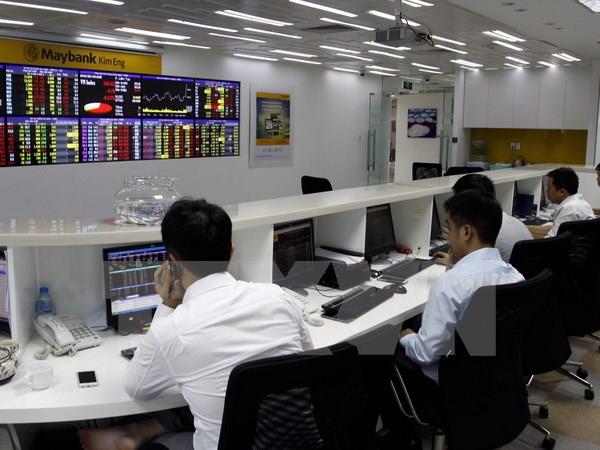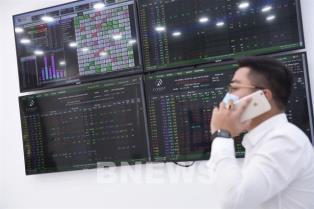The proposed 20 per cent rate is excessively high and could disincentivise retail investors from entering the market.

Compiled by Ly Ly Cao
HÀ NỘI — Last week’s draft proposal by the Ministry of Finance (MoF) to impose a 20 per cent personal income tax on profits from securities trading has sparked widespread debate among legal experts, market participants, and industry bodies, with many warning it could discourage investment and hinder the growth of Việt Nam’s "fledgling" capital market.
The proposal is part of the ministry’s plan to amend the Law on Personal Income Tax, which includes new regulations for taxing individual earnings from stock market activities.
Speaking to Tuổi Trẻ (Youth) newspaper, the CEO of a credit rating agency said that the 20 per cent tax on investment profits is not a new concept. Previously, the Personal Income Tax Law allowed individuals to choose between two methods: a provisional tax of 0.1 per cent on the transfer value or applying a 20 per cent tax rate on net income.
The 0.1 per cent tax on the transfer value was uniformly applied for convenience and to prevent revenue loss.
The CEO noted that technically, securities companies are able to track the cost base and profit for each stock, so calculating tax on gains is no longer difficult.
However, he cautioned that the proposed 20 per cent rate is excessively high and could disincentivise retail investors from entering the market.
Phan Phương Nam, vice dean of the International Law Faculty at Hồ Chí Minh City University of Law, said that investors should be allowed to choose between the two taxation methods, with a gradual shift toward taxing only net profits to ensure fairness.
"If the flat 20 per cent tax is applied, investors should also be allowed to carry forward losses, as many experience gains only in one year after several years of investment," Nam said.
He also proposed applying family deductions for professional investors who rely solely on securities income to align with the principles of equitable taxation.
Nguyễn Hoàng Hải, vice chairman of the Vietnam Association of Financial Investors (VAFI), raised concerns over how interest expenses would be allocated for tax purposes.
"If someone borrows VNĐ5 billion ( over US$191,200) to invest in multiple stocks but only sells one, how would you allocate that interest expense in a way that is acceptable to the tax authorities?" Hải asked.
He also highlighted that many investors use collateral like real estate to obtain investment loans, further complicating expense tracking.

Nurturing revenue or overtaxing
A securities firm’s executive pointed out that Việt Nam’s capital market is still at an early stage of development and should be nurtured rather than overtaxed.
"Tax authorities should focus on growing the tax base by encouraging long-term market participation. Overtaxing could stifle future revenue potential," he said.
Nguyễn Thế Minh, head of the Research and Development Division at Yuanta Securities Vietnam, acknowledged that taxing investment profit aligns with international standards. Still, he recommended a tiered tax system based on holding periods.
"Higher tax rates could apply for stocks held under one year, while long-term investments, over ten years, could be tax-exempt. This would both discourage speculative trading and incentivise long-term investment," Minh said.
Another controversial proposal in the draft is to tax stock dividends and bonus shares at the time of issuance, rather than when the investor sells the shares.
"Taxing stock dividends immediately upon issuance would make this option less attractive and reduce a valuable tool for companies to reinvest profits," according to the Vietnam Chamber of Commerce and Industry (VCCI).
The General Department of Taxation said that personal income tax collected from securities-based dividends between 2016 and 2024 totalled over VNĐ1.3 trillion. However, under the proposed change, this figure could have reached VNĐ17.4 trillion, a more than 13-fold increase.
VCCI emphasised that most investors tend to hold such shares long-term, which suggests the deferred tax method better supports reinvestment and enterprise growth.
"The VNĐ10 trillion in 'uncollected' taxes is actually retained by businesses and channelled into production, job creation and GDP growth. Taxing it prematurely could disrupt this cycle," the organisation warned.
VCCI further noted that receiving stock dividends does not create immediate income for shareholders, as there is no increase in real asset value at the time of issuance.
"This is a technical adjustment in capital structure. Imposing tax here burdens investors financially without corresponding liquidity, especially for those who do not immediately sell the shares," the chamber argued.
Such a move, they stressed, could erode confidence in long-term investing. "Investors may ask: why receive shares and face future uncertainty when cash dividends offer immediate income and the ability to pay taxes upfront?"
VCCI recommended that lawmakers retain the current policy of collecting personal income tax on securities only at the point of transfer.
This approach not only safeguards investor interests but also supports sustainable revenue streams and corporate development.
Last week, the MoF also proposed a 20 per cent tax on income from real estate transactions, which would be calculated based on the profit from each transaction (selling price minus purchase price and related costs).
If the purchase price and costs cannot be determined, the tax will be directly applied to the selling price, taking into account the holding period. —BIZHUB/VNS





